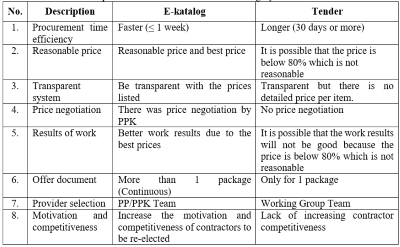Evaluation of Implementation Procurement Policies Via E-Catalog for Construction Work (Case Study: National Road Implementation Agency For West Sumatera Region)
DOI:
https://doi.org/10.24036/cived.v11i3.640Keywords:
implementation, Procurement, E-CatalogAbstract
National Road Implementation Agency (BPJN) for West Sumatera Region has an important role in managing road infrastructure in the West Sumatra Province. In the context of procurement for construction implemented by BPJN for West Sumatra, the use of e-catalogs is a solution to simplify the procurement process. The aim of this research is to evaluate how it is implemented, analyze supporting factors, analyze weaknesses and evaluate the benefits of the policy of procurement via e-catalog in construction work. This research uses a qualitative approach with a semi-structured interview method and Data analysis used thematic analysis. The results of the research show that the implementation of the policy for procurement via e-catalog for construction work at the National Road Implementation Agency for West Sumatera Region has been successfully carried out without any significant problems. Implementation of the policy for procurement via e-catalog in construction work is influenced by various supporting factors, including ease of application, socialization and technical guidance, adequate infrastructure, staff competence and coordination, as well as clear regulations and guidelines. Weaknesses of e-catalogs such as no information on remaining package capabilities, main equipment having to be proprietary, provider selection opportunities, limited service locations, and complete product limitations, all have a significant impact on the effectiveness and efficiency of the procurement process. The E-catalog system provides various significant benefits for construction work. Procurement time efficiency, fair prices, transparent systems, price negotiation, work outcomes, bid documents, provider selection, as well as motivation and competitiveness are some of the key benefits identified.
Downloads
References
RI Presidential Regulation Number 12 of 2021 concerning Amendments to Presidential Regulation Number 16 of 2018 concerning Procurement of Government Goods/Services.
Subianto, A. 2020. Public Policy Review of Planning, Implementation and Evaluation. Surabaya: Brilliant.
Sugiyono. 2019. Understanding Qualitative Research. Bandung: Alphabeta.
Erwah A.P and Dyah R.S. (2015). Public Policy Implementation: Concepts and Applications in Indonesia. Yogyakarta: Gava Media. xiv + 194 pp.
Braun, V., & Clarke, V. (2006). Using thematic analysis in psychology. Qualitative Research inPsychology, 3(2), p.77-101.
http://eprints.uwe.ac.uk/11735/2/thematic_analysis_revised_- _final.pdf [accessed 05 April 2024]
Fereday, J., & Muir-Cochrane, E. (2006). Demonstrating rigor using thematic analysis: A hybrid approach of inductive and deductive coding and theme development. International Journal of Qualitative Methods, 5(1), 80-92.
Edwards III, G. C. (2008). Implementation Public Policy. 8th Revision. Washington: Congressional Quarterly Press.

Downloads
Published
Issue
Section
License
Copyright (c) 2024 Eko Purwono, Taufika Ophyandri, Benny Hidayat

This work is licensed under a Creative Commons Attribution 4.0 International License.

